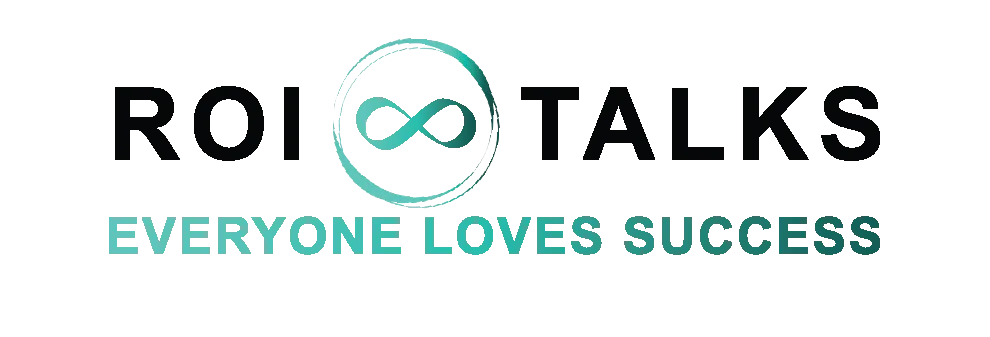Everyone Loves Success
ROI TALKS
Roi Talks Blog

8. Communication | Soul of Sales - The Nine Universal Laws
Communication is the foundation of all human interaction and relationships. It is the process of exchanging information, ideas, and emotions between individuals or groups. It is a dynamic process that involves both sending and receiving messages. The way we communicate with ourselves and others can determine the success or failure of our personal and professional relationships.
For example a study by Richardson, et al. found that active listening was the most important skill for sales professionals, and was positively correlated with sales performance. Additionally, another study by Evans and Davis found that active listening led to increased customer satisfaction and trust in the salesperson.
Communication happens in various forms, such as verbal, non-verbal, and voice. Verbal communication involves the use of language, words, and sentences to express our thoughts and feelings. Non-verbal communication includes body language, facial expressions, gestures, and emotions that we display through our actions and behaviour. Voice communication is about the tone, pace, and volume of our speech.
In many Eastern cultures, nonverbal communication plays a significant role in interpersonal communication. For example, in Japan, bowing is a common nonverbal gesture that expresses respect, gratitude, and apology. In China, eye contact is not always viewed as a sign of respect and can be considered aggressive or rude.
Writing is also an important aspect of communication, but the most critical part of communication happens within ourselves. The way we communicate with ourselves can influence our thoughts, beliefs, and actions. When we communicate with ourselves positively and productively, we tend to achieve more positive outcomes.
Rapport is an essential part of effective communication. It involves creating a connection with others based on trust, respect, understanding, and cooperation. When we establish rapport, we can communicate more effectively, and our interactions become more enjoyable and productive.
A study by Belch and Belch found that building rapport was an important factor in sales success, and was positively correlated with customer satisfaction and loyalty. Additionally, another study by Rosenthal and Rosnow found that salespeople who established rapport with their customers had higher sales success rates.
Being impeccable in communication means being clear, honest, and respectful in all communication, whether on or off the sales stage. It is about being mindful of our words, actions, and behaviour and their impact on others. Being impeccable in communication requires us to listen actively, express ourselves clearly, and respect others' opinions and perspectives.
There are cultural differences in communication styles between Eastern and Western cultures. For example, in Eastern cultures, communication tends to be more indirect and context-dependent, while in Western cultures, communication tends to be more direct and explicit.
Silence is considered an important aspect of communication. For example, in Japan, silence is viewed as a sign of respect and can convey a range of emotions, such as sadness or anger. In India, silence is often used to show agreement or understanding.
A study by Wlodkowski and Ginsberg found that salespeople who adapted their communication style to match the customer's style had higher sales success rates. Additionally, another study by Anderson and Narus found that salespeople who adapted their approach to match the customer's preferences had higher customer satisfaction and loyalty.
Here's a framework for effective communication in sales:
Prepare and plan: Before you communicate with a potential customer, make sure you have a clear understanding of their needs and how your product or service can help them. This will help you tailor your communication to their specific situation.
Establish rapport: Build a connection with your potential customer by showing genuine interest in them as a person, not just a potential sale. This can include asking open-ended questions, actively listening to their responses, and finding common ground.
Communicate benefits, not just features: Rather than simply listing the features of your product or service, focus on the benefits it can provide to the customer. How can it solve their problems or improve their situation? This will help them see the value in what you're offering.
Use effective questioning: Ask open-ended questions to get a better understanding of the customer's needs and pain points. This will help you tailor your communication to their specific situation and demonstrate that you're interested in helping them find a solution.
Active listening: Pay attention to what the customer is saying, both verbally and nonverbally. Use their words and tone to guide your responses and show that you're listening to their needs.
Use clear and concise language: Avoid using technical jargon or industry-specific terms that may confuse or alienate the customer. Use clear, concise language that is easy to understand and focused on the benefits of your product or service.
Handle objections effectively: Be prepared to handle objections by anticipating potential concerns and addressing them proactively. This can include providing additional information, offering a trial or demo, or connecting the customer with relevant case studies or testimonials.
Close the sale: Once you've communicated the value of your product or service and addressed any objections, it's time to close the sale. This can include asking for the sale directly or offering a next step, such as a follow-up call or meeting.
Communication is an essential aspect of our lives. It is the foundation of all relationships, and our ability to communicate effectively determines our success in both personal and professional aspects of our lives. Effective communication involves being impeccable, creating rapport, and using all our senses consciously.
Effective communication is the foundation of successful sales. Whether you're communicating with potential customers, existing clients, or team members, it's important to listen actively, tailor your message to their needs, and build rapport to establish trust and credibility.
By using clear and concise language, focusing on the benefits of your product or service, and addressing objections proactively, you can demonstrate the value of what you're offering and close more sales. Remember, communication is not just about the words you say, but also about how you say them and the nonverbal cues you give off. By mastering the art of effective communication, you can build lasting relationships, increase sales, and achieve your business goals.
ROI TALKS™
Marina Plaza - Office 1004 -1006
Dubai Marina, Dubai, UAE





